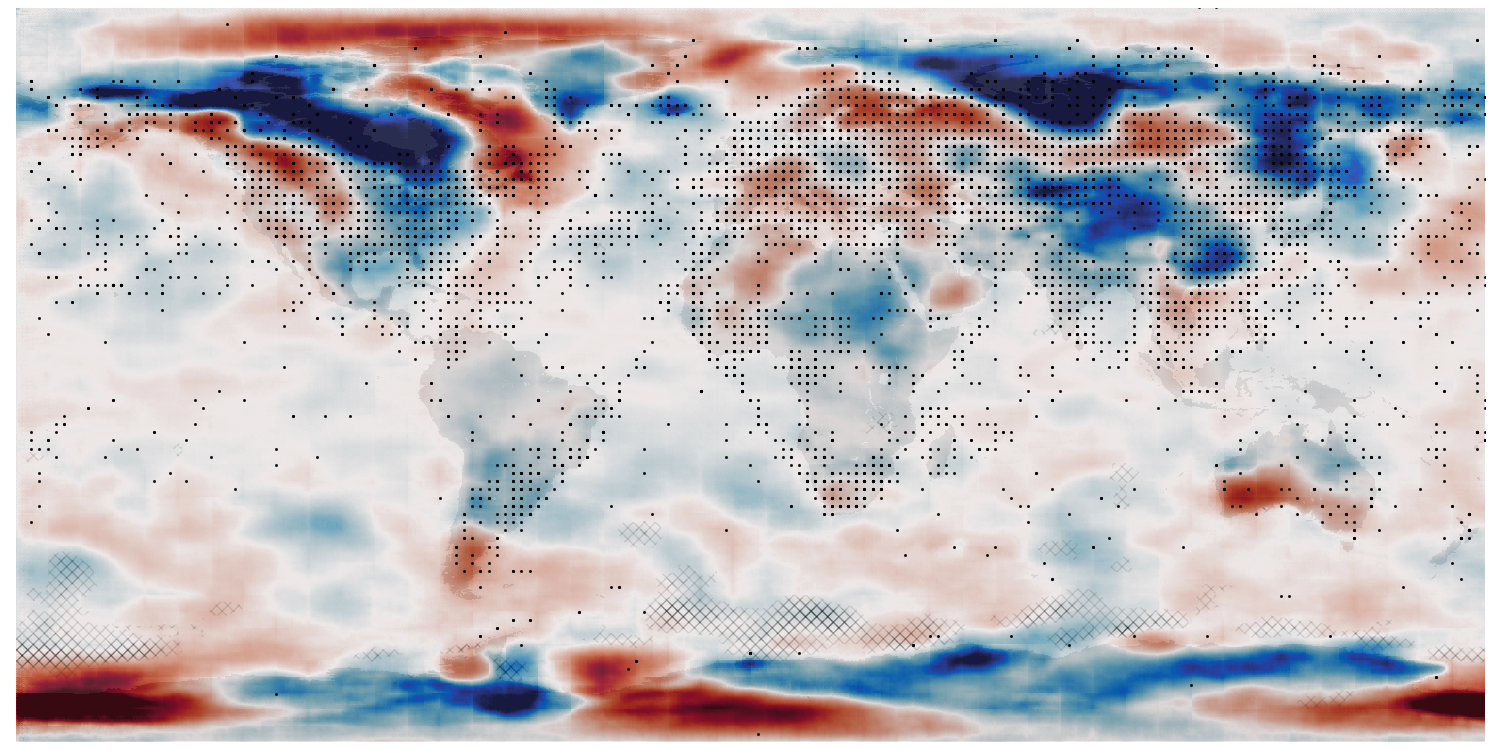Mean-sea-level pressure - convert the data into tf.Tensors¶
Script to make a tensor from a single hour’s data:
#!/usr/bin/env python
# Read in a field from 20CR as an Iris cube.
# Rescale it and move UK to the centre of the field.
# Convert it into a TensorFlow tensor.
# Serialise it and store it on $SCRATCH.
import tensorflow as tf
import numpy as np
# Going to do external parallelism - run this on one core
tf.config.threading.set_inter_op_parallelism_threads(1)
import dask
dask.config.set(scheduler='single-threaded')
import IRData.twcr as twcr
import iris
import datetime
import argparse
import os
import sys
sys.path.append("%s/../../lib/" % os.path.dirname(__file__))
from normalise import normalise_t2m
from normalise import normalise_wind
from normalise import normalise_prmsl
from geometry import to_analysis_grid
import argparse
parser = argparse.ArgumentParser()
parser.add_argument("--year", help="Year", type=int, required=True)
parser.add_argument("--month", help="Integer month", type=int, required=True)
parser.add_argument("--day", help="Day of month", type=int, required=True)
parser.add_argument("--hour", help="Hour of day (0 to 23)", type=int, required=True)
parser.add_argument(
"--member", help="Ensemble member", default=1, type=int, required=False
)
parser.add_argument(
"--source", help="Data source", default="20CR2c", type=str, required=False
)
parser.add_argument(
"--variable", help="variable name", default="prmsl", type=str, required=False
)
parser.add_argument("--test", help="test data, not training", action="store_true")
parser.add_argument(
"--opfile", help="tf data file name", default=None, type=str, required=False
)
args = parser.parse_args()
if args.opfile is None:
purpose = "training"
if args.test:
purpose = "test"
args.opfile = ("%s/Proxy_20CR/datasets/" + "%s/%s/%s/%04d-%02d-%02d:%02d.tfd") % (
os.getenv("SCRATCH"),
args.source,
args.variable,
purpose,
args.year,
args.month,
args.day,
args.hour,
)
if not os.path.isdir(os.path.dirname(args.opfile)):
os.makedirs(os.path.dirname(args.opfile))
# Load and standardise data
if args.source == "20CR2c":
ic = twcr.load(
args.variable,
datetime.datetime(args.year, args.month, args.day, args.hour),
version="2c",
)
ic = ic.extract(iris.Constraint(member=args.member))
ic = to_analysis_grid(ic)
if args.variable == "uwnd.10m" or args.variable == "vwnd.10m":
ic.data = normalise_wind(ic.data)
elif args.variable == "air.2m":
ic.data = normalise_t2m(ic.data)
elif args.variable == "prmsl":
ic.data = normalise_prmsl(ic.data)
else:
raise ValueError("Variable %s is not supported" % args.variable)
else:
raise ValueError("Source %s is not supported" % args.source)
# Convert to Tensor
ict = tf.convert_to_tensor(ic.data, np.float32)
# Write to file
sict = tf.io.serialize_tensor(ict)
tf.io.write_file(args.opfile, sict)
Script to make a tensor for every day in a 40-year period (runs the above script many times):
#!/usr/bin/env python
# Make a few hundred tf data files
# for training the GCM models.
# Get one data file every 5 days+6 hours over the selected years
# They should be far enough apart to be mostly independent.
# Partition off 1/10 of them to be test data
# This script does not run the commands - it makes a list of commands
# (in the file 'run.txt') which can be run in parallel.
import os
import datetime
# Function to check if the job is already done for this timepoint
def is_done(variable, year, month, day, hour, group):
op_file_name = (
("%s/Proxy_20CR/datasets/20CR2c/%s/" + "%s/%04d-%02d-%02d:%02d.tfd")
) % (os.getenv("SCRATCH"), variable, group, year, month, day, hour,)
if os.path.isfile(op_file_name):
return True
return False
f = open("run.txt", "w+")
start_day = datetime.datetime(1969, 1, 1, 0)
end_day = datetime.datetime(2009, 12, 31, 23) # 2009
for variable in ["prmsl"]:
current_day = start_day
count = 1
while current_day <= end_day:
if count % 10 == 0:
if not is_done(
variable,
current_day.year,
current_day.month,
current_day.day,
current_day.hour,
"test",
):
cmd = (
"./make_training_tensor.py --year=%d --month=%d"
+ " --day=%d --hour=%d --variable=%s --test \n"
) % (
current_day.year,
current_day.month,
current_day.day,
current_day.hour,
variable,
)
f.write(cmd)
else:
if not is_done(
variable,
current_day.year,
current_day.month,
current_day.day,
current_day.hour,
"training",
):
cmd = (
"./make_training_tensor.py --year=%d --month=%d"
+ " --day=%d --hour=%d --variable=%s \n"
) % (
current_day.year,
current_day.month,
current_day.day,
current_day.hour,
variable,
)
f.write(cmd)
current_day = current_day + datetime.timedelta(hours=30)
count += 1
f.close()
